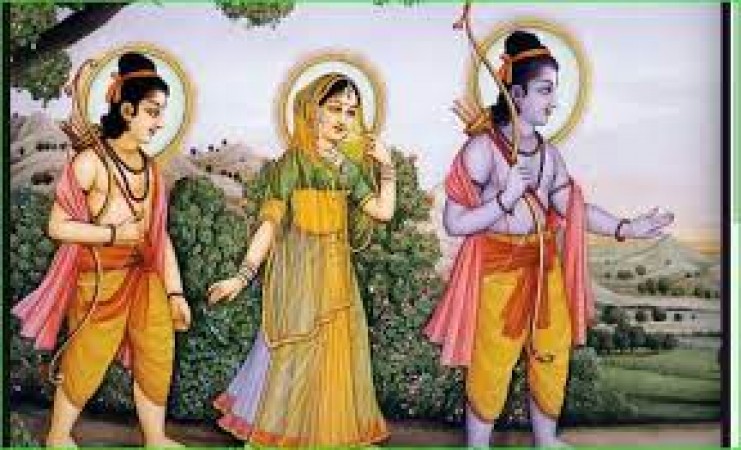
In the rich tapestry of Indian mythology and epic narratives, Lakshmana holds a revered place as one of the central figures in the epic Ramayana. As the younger brother of Lord Rama, Lakshmana's unwavering devotion, loyalty, and bravery make him a symbol of fraternal love and unwavering support. Lakshmana, also known as Shatrughna, was the son of King Dasharatha and Queen Sumitra and the twin brother of Lord Rama. In the epic Ramayana, Lakshmana's character plays a pivotal role in supporting and aiding his elder brother in their journey of trials and triumphs.
From an early age, Lakshmana demonstrated deep love and reverence for his elder brother, Rama. When Rama was exiled to the forest for fourteen years, Lakshmana willingly chose to accompany him, forsaking the comforts of the royal palace. His act of selflessness and sacrifice exemplified the deep bond of brotherhood and loyalty that exists between them.Throughout their exile in the forest, Lakshmana's commitment to Rama's well-being never wavered. He not only protected Rama and his wife, Sita, from various dangers but also stood as a shield, bravely facing adversaries and hardships. His readiness to fulfill his duties as a brother and companion, regardless of the challenges they faced, showcased his unwavering dedication. One of the most touching moments in the Ramayana is when Lakshmana willingly sacrifices sleep during the night to ensure the safety of Rama and Sita. In a moving scene, he draws a boundary line around their dwelling, vowing not to cross it even if Sita were in distress. His dedication and loyalty to his brother's words make him an epitome of devotion and fidelity.
Lakshmana's loyalty extended beyond his devotion to Rama; he also deeply cared for Sita, his sister-in-law. When Sita was abducted by the demon king Ravana, Lakshmana's pain and determination to rescue her mirrored Rama's own anguish. His unwavering support during the search for Sita and the ensuing battle against Ravana showcased his love for both Rama and Sita. Like his elder brother, Lakshmana was committed to upholding dharma (righteous duty). He firmly adhered to the principles of righteousness, morality, and justice throughout the epic. His character exemplifies the ideal of a loyal and responsible individual who places duty above personal desires.
Lakshmana's life came to a poignant end during the final moments of the Ramayana. After the victorious battle against Ravana and the return to Ayodhya, Lakshmana willingly chose to follow his brother into the sacred Sarayu River. In an act of self-realization and devotion, he sought to reunite with his brother and the divine realm. His ultimate sacrifice served as a testament to his unwavering loyalty and love for Lord Rama. The character of Lakshmana in the Ramayana continues to inspire generations with his devotion, selflessness, and sacrifice. He exemplifies the virtues of a devoted brother, a loyal companion, and an unwavering protector. Lakshmana's unwavering dedication to his elder brother Rama sets a profound example for individuals to cherish and uphold the bonds of love, loyalty, and fraternity.
In conclusion, Lakshmana's role in the epic Ramayana goes far beyond being just a supporting character. He represents the profound virtues of loyalty, devotion, and sacrifice, making him an iconic figure in Indian mythology and a symbol of brotherly love and unwavering commitment. The legacy of Lakshmana continues to remind humanity of the importance of supporting and standing by loved ones during life's trials and tribulations.
Also read –Lakshmana Temple: Testament to The Architectural Marvels
Discovering India's 10 Popular Temples and Their Sacred Significance
The Yajur Veda: The Sacred Knowledge of Rituals and Sacrifices